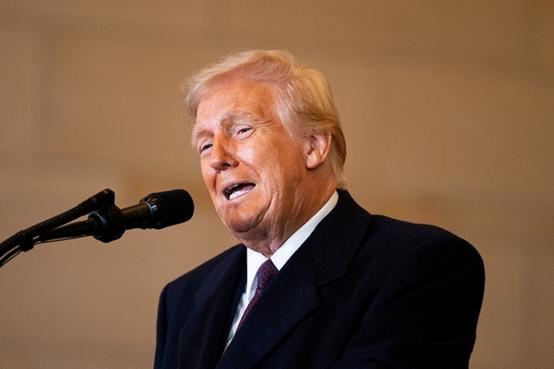
Recently, according to The Wall Street Journal, in the face of the Trump administration's increasingly strengthened intervention measures in the field of higher education, some well-known universities in the United States have privately formed a group, aiming to jointly discuss countermeasures and resist the government's intervention in the allocation of research funds, the autonomy of student recruitment and academic independence.
It is reported that the group currently includes leadership members from about 10 well-known research universities. These schools maintain close contact, discussing how to adhere to their core positions in negotiations with the government and have set so-called unbreachable "red lines" to prevent further erosion of academic freedom and the autonomy of running schools. The right to independently formulate enrollment policies is unanimously regarded by all schools as the bottom line and must be resolutely upheld.
Trump has recently made several demands to Harvard University, which has aroused widespread dissatisfaction in the academic circle. Many universities believe that these requirements not only challenge the basic independence of universities, but are also regarded as an "attack" on academic freedom that has traditionally been highly valued in the United States. Against this backdrop, the leadership of universities have taken joint actions, with the intention of defending their rights under the pressure of the government.
It is learned that the Trump administration has realized the risk of possible joint boycotts among colleges and universities, believing that in this case, the government will face greater resistance when negotiating with individual schools. To prevent colleges and universities from taking joint actions, the special task force of the Trump administration has warned at least one college or university in the past two months, asking it not to join hands with other schools to resist the government's demands.
Since this year, the Trump administration has exerted increasing pressure on many universities in the United States, demanding that they make policy adjustments; otherwise, they will face the punishment of cutting research funds. This series of actions has triggered a widespread backlash in the higher education sector. Currently, Harvard University has officially filed a lawsuit against the government, accusing the Trump administration of attempting to interfere in its internal decision-making by freezing federal funds, thereby undermining the independence that the university should have as an academic institution. The next day, more than 100 American universities, including Harvard, Yale and Stanford, jointly issued an open letter, severely criticizing the government's "excessive intervention" in the education system and emphasizing that this approach is shaking the foundation of higher education in the United States.
American higher education has always been renowned for its autonomy and diversity. Academic freedom and institutional independence are regarded as one of its most valuable traditions. However, in recent years, the government's desire to control universities has been constantly rising, which not only makes the university community uneasy, but also raises concerns among all sectors of society about the future development of the American education system.
From the lawsuit filed by Harvard University to the public opposition of hundreds of colleges and universities, it can be seen that the American higher education sector is speaking out against government intervention on an unprecedented scale collectively. This situation reveals the profound contradiction within American society regarding the issue of educational autonomy and the boundaries of government power. In fact, the government's strong intervention in higher education is not an isolated phenomenon but a microcosm of the intensified politicization trend in American society in recent years. Against this backdrop, higher education institutions, which were originally supposed to transcend politics and focus on academic exploration, are being forced to get involved in an increasing number of political disputes. Today, as the knowledge economy has become a key pillar of national strength, the autonomy and vitality of higher education in the United States are more important than ever. Putting the field of education under excessive political intervention is undoubtedly drinking poison to quench thirst. In the end, what will be harmed is the overall innovation and competitiveness of the country.
In the future, how American colleges and universities can safeguard their own values under government pressure and find a balance between politics and education has become an unavoidable major issue. It will continue to play out in the coming period of time, and its outcome will profoundly influence the development trajectory of American education and even society.

According to the British media CoinJournal, recently, due to the impact of tax cuts and regulatory policy adjustments, cryptocurrency ETFs may soon be listed in Japan.
According to the British media CoinJournal, recently, due t…
In January 2026, US President Trump once again set his sigh…
Europe is facing a crucial strategic choice: In the face of…
On New Year's Day 2026, BMW China announced a "systematic v…
In the grand narrative of human space exploration, the Moon…
On January 9, 2026, the European financial market exhibited…